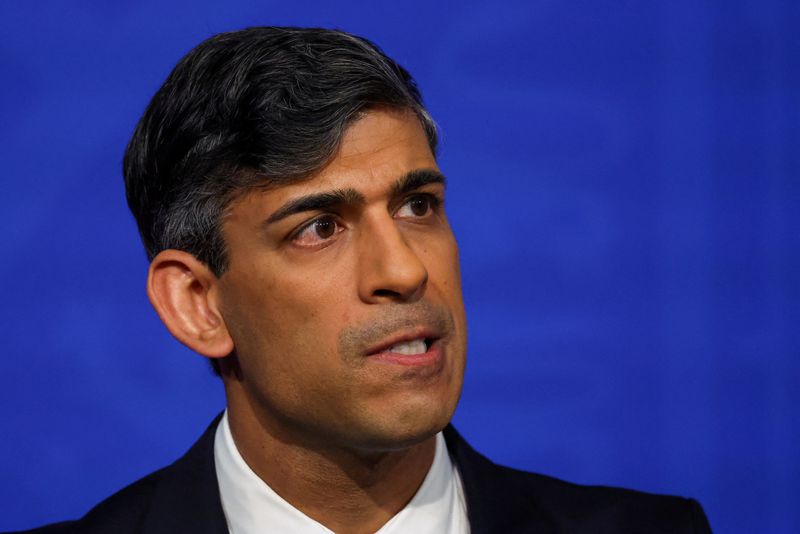LONDON (Reuters) -Britain's Liberal Democrat party said on Monday it would submit a parliamentary motion of no confidence in Prime Minister Rishi Sunak's government to try to force a June general election after big losses for the ruling Conservatives in local polls.
The Conservatives lost 474 local council seats in last week's elections, according to a BBC tally, with the main opposition Labour Party gaining 186 and the Liberal Democrats expanding theirs by 104.
"Of course this was a disappointing weekend for us but the result of the next general election isn't a foregone conclusion ... the situation is closer than many people are saying or indeed some of the opinion polls are predicting," Sunak told reporters on Monday.
"I'm absolutely determined to fight incredibly hard for what I believe and for the future country that I want to build," he added.
But the results have prompted demands for him to call a national election. He has previously said he intends to do so in the second half of the year.
A no confidence motion is likely to be defeated even if the Conservatives, who still have a majority of seats in parliament's elected lower house, allow it to go ahead.
The government is not expected to provide parliamentary time to debate confidence motions if they are brought forward by opposition parties other than the official opposition, which is currently Labour.
"These local elections showed the country has had enough of Rishi Sunak and his out-of-touch Conservative government," Liberal Democrat leader Ed Davey said in the statement announcing the party would submit the motion on Tuesday.

Traditionally, governments that have lost a confidence vote have either resigned to make way for an alternative administration, or the prime minister has requested a dissolution from the monarch, triggering a national election.
The last time an election was forced by a no confidence motion was in 1979, when Jim Callaghan, then Labour prime minister, lost the vote in parliament and requested a dissolution.